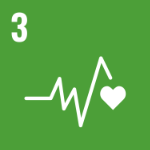

3. Good health and well-being
Brown sugar, how come you taste so good?
More than 40 countries around the world and a handful of American cities have introduced or are considering introducing soda taxes. In addition to raising tax revenues, these instruments aim to reduce the consumption of products whose prices do not reflect their true social costs by making them comparatively more expensive (and increasing awareness about the bads of consuming those products). Tobacco and alcohol taxes are classic such examples. The same rationale applies to soda (and other unhealthy foods and drinks): excessive sugar intake from soda is associated with a higher prevalence of diseases such as obesity and diabetes, with the costs of treating these diseases falling on everyone.
The recent popularity of soda taxes is not without criticism. In 2016, Senator Bernie Sanders wrote an open letter against such taxes, on the grounds of their supposed regressivity and unfairness. On the other side of the political spectrum, many believe soda taxes are too paternalistic and impose restrictions on individual freedom.
In a recent empirical study, my colleague João Pereira dos Santos and I seek to document the impacts of the Portuguese soda tax on both soda prices and consumption.
Portugal introduced a tax on non-alcoholic beverages with added sugar or artificial sweeteners in February 2017. With two brackets, the tax penalized more heavily drinks with higher sugar content (0.08€ per liter for drinks with less than 80 grams of sugar per liter and 0.16€ per liter for drinks with 80 grams of sugar or more). This tax structure is still relatively rare and makes the Portuguese soda tax particularly interesting to study because there is a clear incentive for manufacturers of drinks with sugar content at or above the threshold to reformulate recipes and avoid paying the higher tax.
In our study, we analyzed data on monthly sales of each soda product at each of more than 400 stores of a large Portuguese retailer. We applied statistical methods that allow us to identify the causal effect of the tax on soda prices and consumption. Put simply, we compared four groups of products affected by the tax (1. drinks with 80 grams of sugar per liter or more, 2. drinks with sugar content just below 80 grams, which had their recipes altered, 3. drinks with lower sugar content, and 4. artificially-sweetened beverages) to bottled water, which was not affected by the tax. We were careful about potential confounders such as seasonality, preferences, or aggregate trends.
Our findings can be summarized as follows. First, soda prices increased by about the amount of the tax (slightly less in the case of the sweetest drinks and a bit more in the case of drinks with sugar content below the threshold). Regarding consumption, our results suggest limited impacts of the tax. We do find a significant and substantial drop in the consumption of drinks with comparatively lower sugar content (-18%). For drinks with very high sugar content, the point estimate suggests a 6% drop in consumption, but it is not estimated with enough precision to be statistically significant.
To conclude, the Portuguese soda tax has two main distinctive features: it depends on sugar content, taxing more heavily drinks with a lot of sugar, and artificially-sweetened beverages are also taxed. Due to its structure, the Portuguese soda tax led producers to reformulate many recipes towards lower sugar content. This seems to have been the main channel through which the tax reduced sugar intake from soda.
You can find the research paper here.

